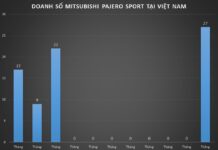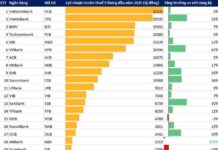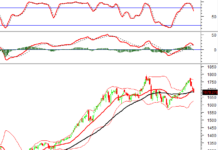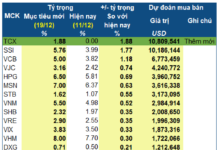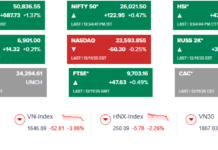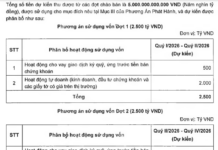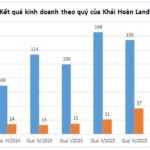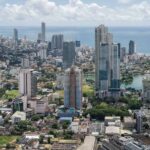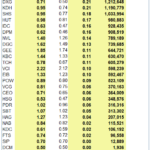According to Dr. Đặng Văn Cường, a lawyer and head of the Chính Pháp Law Firm (Hanoi Bar Association), money laundering has severe implications for the economy, currency security, and the overall fight against crime, particularly corruption. Consequently, numerous countries, including Vietnam, have enacted anti-money laundering laws and engaged in international cooperation to combat this issue.
To counter money laundering, Vietnam has implemented various measures, including stringent regulations on business operations and financial banking activities. Notably, the country has strictly prohibited the lending or renting of bank accounts. However, in practice, the forgery of citizen ID cards to establish fraudulent companies and the borrowing or renting of bank accounts remain prevalent. These activities facilitate money laundering, especially the transfer of funds between Vietnam and foreign countries.

Cybercriminals engaging in money laundering are becoming increasingly dangerous, sophisticated, and complex.
A notable case occurred on September 27, 2025, when the Hanoi People’s Court conducted a first-instance trial of 11 defendants involved in a large-scale money laundering scheme operating in Hanoi and other provinces between 2023 and 2024. The defendants were charged with “Illegally trading bank account information.” According to the indictment, in September 2023, Ngô Duy K (born 1998, from Vĩnh Long) connected with a Cambodian individual on Facebook who hired him to open and collect bank accounts for sale at 4 million VND per six accounts. Over three months, K opened six accounts and recruited nine others to open an additional 32 accounts, profiting 13 million VND. Hà Thị Tr (born 1994, from Ho Chi Minh City) also participated, registering six accounts and recruiting others to open 23 more, earning 8.5 million VND.
Despite knowing the funds were illicit, the defendants proceeded with the transactions. These accounts were used by criminal groups to launder money obtained from various scams. From October 2023 to January 2024, the fraudsters stole over 30 billion VND from seven victims. The funds were then transferred to Trần Thị L’s group (born 1993, from Hanoi). L’s group received the money across multiple bank accounts, dispersed it through various channels, and purchased USDT cryptocurrency to conceal its illegal origins.
Similarly, in late August 2025, the Economic Police Department of Da Nang City Police initiated legal proceedings against 20 additional suspects in the largest money laundering ring ever recorded. This marked the second phase of an investigation into a syndicate involved in “Money laundering, illegal trading of bank account information, forgery of seals and documents of agencies and organizations, and use of forged seals and documents of agencies and organizations,” which began in early 2025. In the first phase, authorities had already prosecuted 13 suspects for these offenses. Investigators determined that from 2022 to late 2024, the perpetrators forged citizen ID cards to establish 187 fraudulent companies and counterfeit seals of banks, government agencies, and notary organizations to open over 600 corporate bank accounts, which were then sold to criminal entities.
These accounts were used by criminals to transfer and legitimize funds from illegal activities such as fraud and gambling, both domestically and internationally, while evading regulatory oversight. Authorities identified transactions totaling nearly 30 trillion VND (including over 300 billion VND in foreign exchange). Among the 20 newly prosecuted suspects, three bank employees colluded with criminals to open accounts for fraudulent companies, enabling fraudulent activities and money laundering. Additionally, a suspect used a USDT cryptocurrency wallet to receive illicit funds from Cambodia for a criminal group, leading to their prosecution for money laundering. The Da Nang City Police Investigation Agency continues to focus on dismantling and prosecuting the offenders while actively recovering assets to compensate victims.
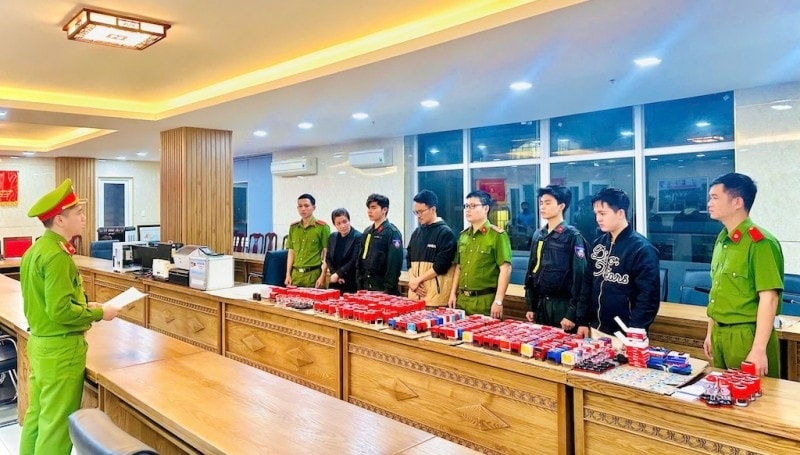
In late August 2025, the Economic Police Department of Da Nang City Police initiated legal proceedings against 20 additional suspects in the largest money laundering ring ever recorded.
In practice, the illegal collection, storage, exchange, and sale of bank account information are occurring on a large scale, with diverse and increasingly sophisticated methods. The number of compromised accounts, both physical and digital, highlights the prevalence and systemic nature of this crime.
According to Master Nguyễn Phúc Quân from Dong A University, some cases involve the collection or storage of data from tens of thousands to millions of accounts, indicating that criminal activities have reached an industrialized level, serving multiple illicit purposes. A notable trend is the cross-border connectivity, with many cases involving transactions or data exchanges with individuals in Cambodia, China, Singapore, Nigeria, and the Philippines. This reflects the integration of high-tech crime, where Vietnamese bank accounts are used as tools or intermediaries for international money laundering, online fraud, and illegal money transfers.
The recent dismantling of a 30 trillion VND money laundering ring by Da Nang City Police exemplifies the complexity of such cases, involving massive sums, numerous participants, international elements, and sophisticated high-tech criminal methods, aided by various organizations and individuals. During the investigation, law enforcement will continue to clarify case details and identify all involved parties for legal prosecution.
Dr. Đặng Văn Cường emphasizes that combating money laundering requires coordinated efforts from multiple agencies and effective international cooperation. Additionally, strict oversight of credit institutions and businesses is essential to promptly identify and address fraudulent companies in accordance with the law.
Stay tuned for Part 2: Money Laundering Through Cryptocurrency Assets
Western Neighbor of Vietnam: 9th in ASEAN GDP per Capita, Landlocked Yet Boasts a Seaport
Laos, the only landlocked nation in ASEAN, has achieved a remarkable feat by establishing its own seaport. Despite its geographical constraints, the country has successfully developed a maritime gateway, defying the odds and connecting itself to the global trade network. This innovative approach showcases Laos’ determination to overcome its landlocked status and unlock new economic opportunities.


